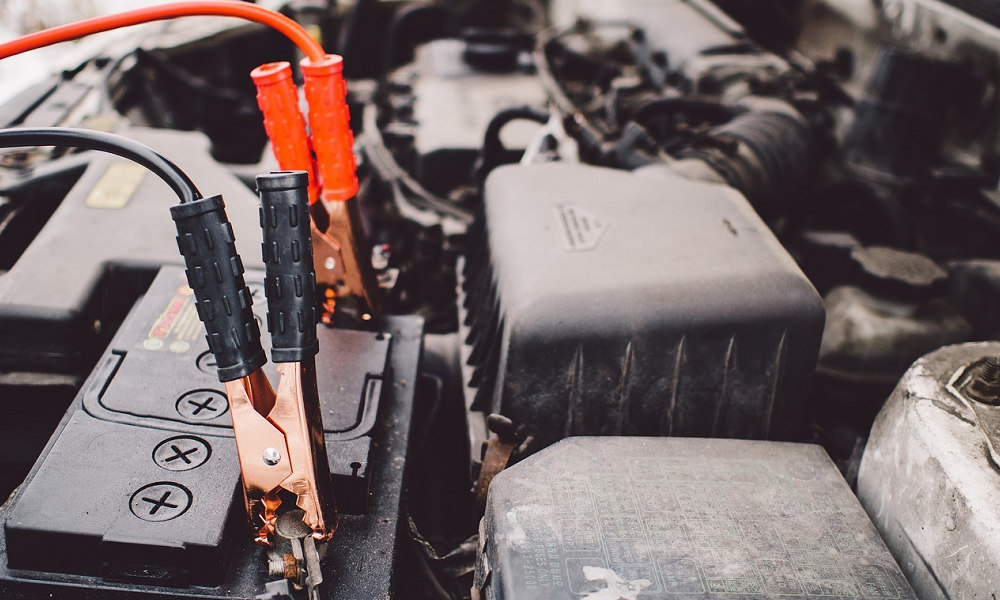Reviews
Understanding the Different Types of Car Batteries: A Comprehensive Guide

A car’s battery is one of its most critical components, powering the engine and supporting its electrical systems. With the range of options available, understanding the different types of car batteries is essential for making the right choice for your vehicle. This guide will explore the various types, their features, benefits, and applications.
Lead-Acid Batteries: The Traditional Choice
Lead-acid batteries are the most common car battery type and have been used for over a century. They are reliable, cost-effective, and widely available.
Types of Lead-Acid Batteries
- Flooded Lead-Acid (FLA):
- Also known as wet-cell batteries.
- Regular maintenance requires checking electrolyte levels and topping up with distilled water.
- Commonly used in older vehicles and budget-friendly cars.
- Sealed Lead-Acid (SLA):
- Includes Absorbent Glass Mat (AGM) and Gel Cell batteries.
- Maintenance-free and spill-proof.
- Often found in modern cars with higher electrical demands, such as those equipped with start-stop systems.
Pros:
- Affordable.
- Reliable performance for standard vehicles.
- Recyclable, making them environmentally friendly.
Cons:
- Shorter lifespan compared to advanced batteries.
- Requires maintenance for FLA types.
AGM Batteries: High Performance and Durability
Absorbent Glass Mat (AGM) batteries are a subtype of sealed lead-acid batteries. They are designed to handle higher electrical loads and are ideal for vehicles with start-stop technology.
Key Features:
- Faster recharge rates.
- Spill-proof and maintenance-free.
- Better resistance to vibration and impact.
Applications:
- Modern vehicles with numerous electronic components.
- High-performance cars and vehicles used in extreme conditions.
Pros:
- Longer lifespan than traditional lead-acid batteries.
- Superior power delivery.
- Works well in cold weather.
Cons:
- More expensive than standard lead-acid batteries.
- May be optional for basic car models.
Gel Cell Batteries: Enhanced Safety and Longevity
Gel cell batteries are another type of sealed lead-acid battery. They use a gel-like electrolyte, which makes them highly resistant to leaks and spills.
Key Features:
- It is ideal for deep-cycle applications where batteries are frequently discharged and recharged.
- Low self-discharge rate, allowing longer storage periods without significant power loss.
Applications:
- Recreational vehicles (RVs), boats, and off-road vehicles.
- Cars with heavy electrical loads.
Pros:
- Maintenance-free and spill-proof.
- Excellent performance in extreme temperatures.
Cons:
- Higher cost.
- More widely available than other types.
Lithium-Ion Batteries: The Future of Automotive Power
Lithium-ion (Li-ion) batteries are becoming increasingly popular in electric vehicles (EVs) and hybrid cars due to their high energy density and lightweight design.
Key Features:
- Capable of storing more energy in a smaller and lighter package.
- Long lifespan and rapid charging capabilities.
Applications:
- Electric vehicles (EVs) and plug-in hybrids.
- Cars designed for high efficiency and reduced environmental impact.
Pros:
- Lightweight, improving vehicle efficiency.
- Longer lifespan and reduced maintenance needs.
- Environmentally friendly due to lower emissions.
Cons:
- Expensive compared to other types.
- Limited availability for traditional gasoline-powered vehicles.
Nickel-Metal Hydride (NiMH) Batteries: A Hybrid Favorite
Nickel-Metal Hydride batteries are commonly used in hybrid vehicles. They offer a good balance between performance and cost, making them a popular choice for eco-friendly cars.
Key Features:
- Higher energy density than lead-acid batteries.
- More affordable than lithium-ion batteries.
Applications:
- Hybrid vehicles like the Toyota Prius.
- Some mild hybrid and plug-in hybrid models.
Pros:
- Durable and capable of handling frequent charging and discharging.
- Environmentally safer than traditional lead-acid batteries.
Cons:
- Less energy-dense than lithium-ion batteries.
- Susceptible to memory effect if not properly managed.
Deep-Cycle Batteries: Designed for Sustained Power
Deep-cycle batteries are built to provide steady power over a prolonged period, unlike starter batteries that deliver a quick burst of energy to start the engine.
Key Features:
- Can be discharged to a greater extent without damaging the battery.
- Designed for long-lasting power delivery.
Applications:
- Electric vehicles, golf carts, and forklifts.
- Cars with heavy electrical demands, such as those with high-end audio systems or frequent off-grid use.
Pros:
- Long lifespan with proper maintenance.
- Handles repeated deep discharges well.
Cons:
- Not suitable for traditional starting applications.
- Requires a specific type of charging system.
Start-Stop Batteries: Efficiency for Modern Cars
Vehicles with start-stop systems demand a battery that can handle frequent engine restarts. Both AGM and Enhanced Flooded Batteries (EFB) are commonly used for this purpose.
Key Features:
- Designed to handle numerous start-stop cycles without losing capacity.
- Provides sufficient power for modern electrical systems.
Applications:
- Cars with start-stop technology to improve fuel efficiency and reduce emissions.
Pros:
- Improves fuel economy.
- Long-lasting and efficient in urban driving conditions.
Cons:
- More expensive than conventional batteries.
- Requires specific maintenance and charging equipment.
How to Choose the Right Battery for Your Car
Selecting the right battery involves considering several factors:
- Vehicle Requirements: Check the owner’s manual for recommended battery specifications.
- Climate Conditions: Opt for a battery that performs well in local weather.
- Driving Habits: Frequent short trips or heavy electrical usage may require a more durable battery type, such as AGM or lithium-ion.
- Budget: Balance initial cost against long-term savings from durability and performance.
Conclusion
Understanding the different types of car batteries can help you make an informed decision that aligns with your vehicle’s needs and your budget. Whether you’re driving a classic car, a modern hybrid, or an electric vehicle, there’s a battery designed to keep you on the road with maximum efficiency and reliability. Choose wisely, and your battery will serve you well for years.

-

 Legal6 days ago
Legal6 days agoMichigan man JD Vance sentenced to 2 years for threatening Trump and JD Vance
-

 Politics1 week ago
Politics1 week agoU.S. to designate Maduro-linked Cartel de los Soles as terrorist organization
-

 Health7 days ago
Health7 days agoCambodia reports fatal H5N1 bird flu case in 22-year-old man
-

 World4 days ago
World4 days agoHurricane Melissa registered 252 mph wind gust, breaking global record
-

 Legal4 days ago
Legal4 days agoWoman in critical condition after being set on fire on Chicago train
-

 Politics7 days ago
Politics7 days agoEpstein survivors release PSA calling on Congress to release all files
-

 Legal4 days ago
Legal4 days ago1 dead, 2 injured in shooting at Dallas Walmart parking lot
-

 Legal3 days ago
Legal3 days agoSuspect in San Diego stabbing shot by authorities after fleeing into Mexico




